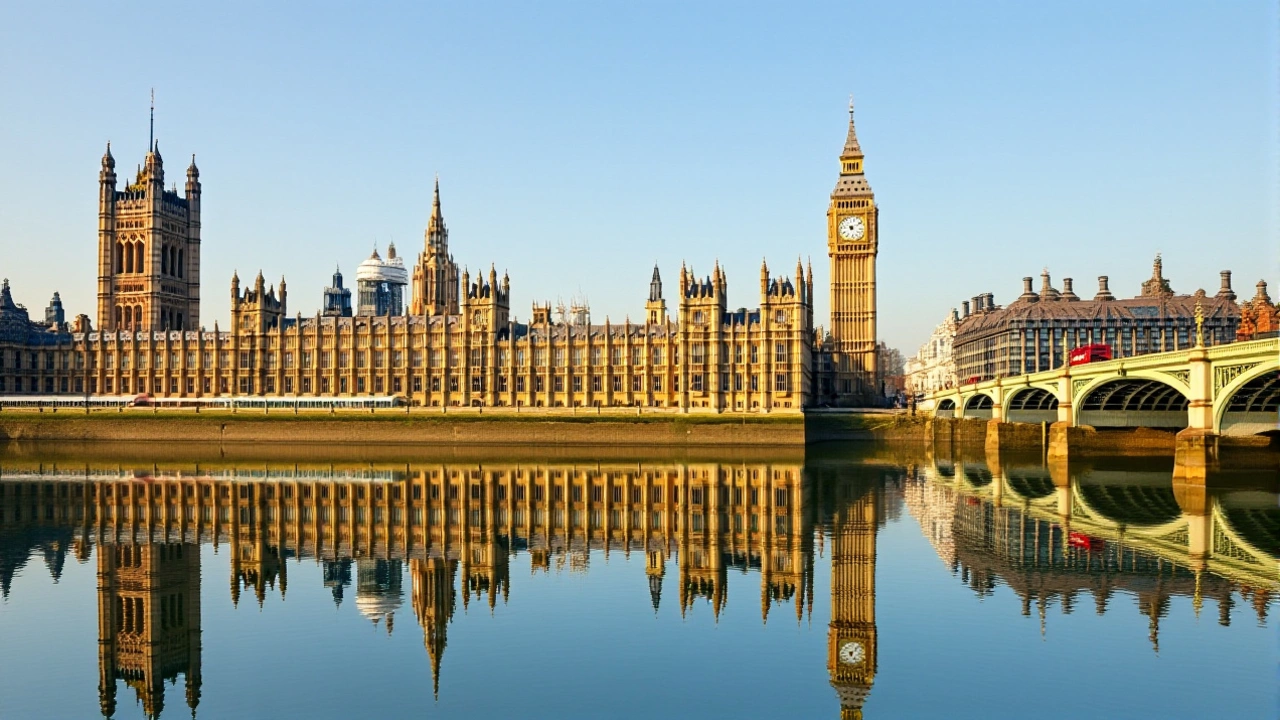When Rachel Reeves stood in the House of Commons on November 26, 2025, and announced the most aggressive property tax overhaul in decades, markets didn’t flinch—they rallied. The Autumn Budget 2025 delivered a £26 billion tax increase, mostly targeting the wealthiest homeowners and landlords, yet the FTSE 100 jumped 1.4% by closing bell. Why? Because investors saw a government finally tackling long-ignored fiscal imbalances—even if it meant rattling the very foundations of Britain’s housing market.
What the Budget Actually Changed
The centerpiece? A mansion tax set to begin April 1, 2028. Properties valued above £2 million will pay £2,500 annually; those above £5 million, £7,500. That’s not a one-off fee—it’s recurring, indexed to inflation, and enforced through HM Land Registry. The Office for Budget Responsibility (OBR) estimates this alone will raise £11.2 billion by 2029-30, with another £9 billion coming from a 2 percentage point hike in income tax on rental income, effective April 6, 2027. The twist? Stamp duty on share trades is being scrapped entirely—the first such change since 1808. Treasury officials called it a "game-changer for market confidence," and Barclays Capital expects commercial property deals to surge 12-15% as capital shifts from real estate to equities.Who’s Really Feeling the Pinch?
The mansion tax hits just 0.4% of UK homes—those worth over £5 million—but it’s the 1.6% between £2 million and £5 million that will feel the squeeze most acutely. These are not speculative investors; many are retired professionals, doctors, or small business owners who bought in London or the South East decades ago and never sold. They’re rich in equity, poor in cash flow. Mark Hughes, a specialist at Pure Property Finance, put it bluntly: "They’re asset-rich, cash-poor. Forcing them to pay £7,500 a year won’t make them richer—it’ll force sales. And that’s going to flood the top end of the market with properties nobody wants to buy at current prices." Meanwhile, 2.3 million private landlords—many of them single-property owners—face a tax hike that could push their net returns below 3%. Coles, cited in euronews, warned this could "turn investors away," leaving renters with fewer options and higher rents. Rightmove reported a 1.8% monthly drop in average house prices in November 2025—not because demand collapsed, but because buyers froze, waiting to see if the Budget would scrap stamp duty on homes. It didn’t. That’s still in place. The mansion tax? That’s the new threat.Why London and the South East Are Ground Zero
Sixty-eight percent of UK homes valued above £2 million sit in London and the South East. Kensington and Chelsea, Westminster, Wandsworth—these are the boroughs where the tax will bite hardest. In Kensington, where the average home now exceeds £3.2 million, a £2,500 annual charge represents nearly 10% of what some landlords earn after mortgage and maintenance. One estate agent in Putney told me: "We’ve had three clients in the past week say they’re thinking of selling before the tax kicks in. Not because they want to, but because they can’t afford to hold on." The irony? Council tax bands haven’t been updated since 1991. Properties today are worth 457% more than they were then. The mansion tax is the first real attempt to fix that imbalance—but it’s crude. It doesn’t account for inflation, location, or household income. A retired nurse living in a £2.3 million home she bought in 1998 pays the same as a tech billionaire who bought theirs last year. That’s not fairness. It’s just a blunt instrument.
The Bigger Picture: Debt, Surplus, and the OBR’s Apology
The OBR projected a £22 billion current surplus by 2029-30—double its previous forecast. But public debt will still be 2% of GDP higher than March 2025 estimates. That’s the trade-off: short-term fiscal discipline, long-term structural risk. And then there was the leak. On November 25, 2025, the OBR publicly apologized for an unprecedented pre-Budget data breach that had leaked key figures to financial outlets hours before the Chancellor’s speech. Market movements that day were already reacting to rumors. The apology didn’t fix it—but it confirmed how fragile trust in fiscal transparency has become.What Comes Next? The Sunset Clause and the 2035 Deadline
Every tax measure in this Budget comes with a 10-year sunset clause. The mansion tax must be reviewed by November 26, 2035—or it vanishes. That’s not a loophole. It’s a political hedge. The government knows this is unpopular. It’s betting that by 2035, the market will have adjusted, or public opinion will have shifted. But here’s the catch: if the tax causes a 10% drop in prime London prices by 2027, as Savills predicts, the political cost could be enormous. Property is not just an asset—it’s identity. For many, it’s their pension.
Why This Matters Beyond the Wealthy
You might think this is about millionaires. It’s not. It’s about the ripple effect. When landlords sell to avoid the mansion tax, they often don’t exit the market—they downsize. That pushes more people into rentals. When rental income tax rises, landlords pass it on. Renters in Manchester, Birmingham, or Leeds will feel this—even if they’ve never seen a £2 million house. The Treasury says it’s "fair." Critics say it’s unfair to punish people who played by the rules for decades. And the markets? They’re cheering. Because for investors, certainty matters more than fairness.Frequently Asked Questions
How will the mansion tax affect homeowners who don’t rent out their property?
Homeowners who live in properties over £2 million will pay the tax regardless of whether they rent. The £2,500 or £7,500 annual fee is based solely on valuation, not income. Many are retirees or long-term residents who bought before the housing boom and now face a cash crunch despite owning valuable homes. HM Land Registry requires registration by December 31, 2027, with first payments due January 31, 2029.
Why is stamp duty on shares being removed?
The 0.5% stamp duty on share purchases was introduced in 1808 and is now seen as outdated. Removing it is meant to make the UK more competitive for global investors. Treasury data suggests it could attract £4.5 billion in new foreign capital annually by 2028. Barclays Capital projects a 12-15% rise in UK corporate bond and equity transactions as a result.
Will renters see their bills go up because of the rental income tax hike?
Yes. With landlords facing a 2% income tax increase on rental profits, most will pass the cost to tenants. The Office for Budget Responsibility estimates average rents could rise 3-5% in high-demand areas by 2028. This hits low- and middle-income renters hardest, particularly in cities where supply is already tight.
What’s the difference between the mansion tax and council tax?
Council tax is based on 1991 property values and applies to all homes, regardless of value. The mansion tax is a new, targeted annual charge on properties over £2 million, based on current valuations. It’s not a replacement—it’s an additional layer. Only 2% of UK homes will pay both, but those homes are concentrated in London and the South East, where housing values have skyrocketed since 1991.
Why did the OBR apologize before the Budget?
On November 25, 2025, leaked data revealed the planned £26 billion tax increase and £22 billion surplus forecast before the Chancellor’s speech. The OBR admitted the breach was "unprecedented and unacceptable," damaging public trust. Markets reacted to the leak, meaning the Budget’s impact was partially priced in before it was even announced.
Is there any relief for middle-income homeowners?
No direct relief was offered. The Budget explicitly left standard Stamp Duty Land Tax unchanged for homes under £500,000. But the £8.6 billion infrastructure investment and planning reforms aim to unlock 1.2 million new homes over five years, which could ease pressure on prices long-term. Whether that helps middle-income buyers depends on whether those homes are actually built—and whether they’re affordable.
